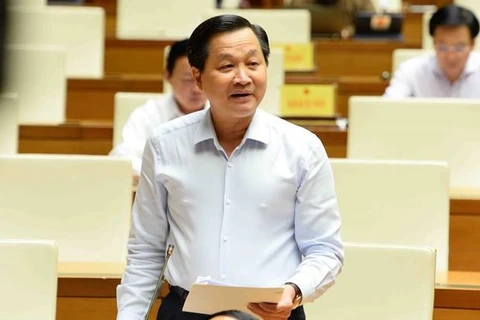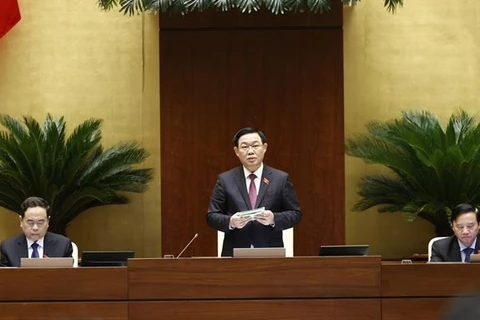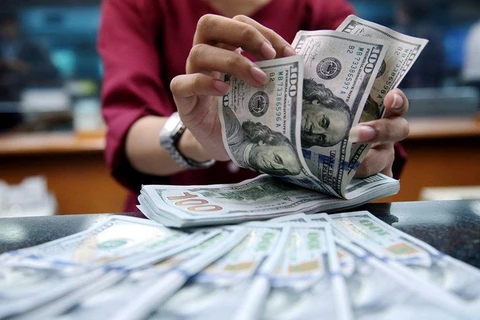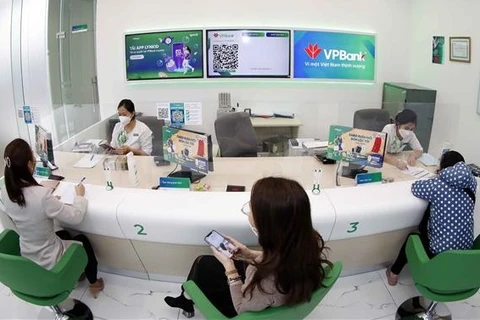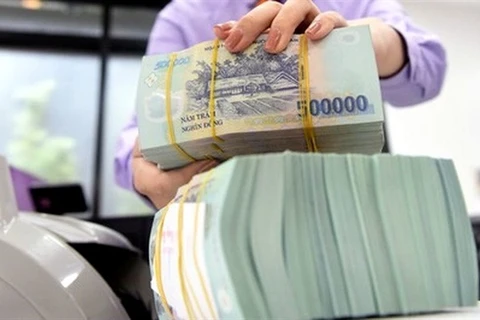 Pham Chi Quang, Deputy Director of the Monetary Policy Department at the State Bank of Vietnam (Photo: VietnamPlus)
Pham Chi Quang, Deputy Director of the Monetary Policy Department at the State Bank of Vietnam (Photo: VietnamPlus) Hanoi (VNA) – The State Bank of Vietnam (SBV) will increase its intervention in the foreign currency market and stay ready to pump money to the market more frequently. The idea is to create favourable conditions for credit institutions to meet organisations and individuals’ legal demand for foreign currencies, according to Deputy Director of the SBV’s Monetary Policy Department Pham Chi Quang.
Talking to VietnamPlus, the official said that since the beginning of 2022, complicated and unpredictable developments in the international market has strongly affected prices of energy and basic commodities, thus worsening impacts of global supply chains.
In this context, central banks in the world have stepped up tightening monetary policies and raised benchmark interest rates to control mounting inflationary pressure around the world, resulting in strong fluctuations in the financial - monetary market, he noted.
The US Federal Reserve (FED) has lifted its benchmark interest rate thrice during the first six months of 2022. The hike of 0.75 percentage point on June 15 was the biggest in 28 years. FED is expected to keep tightening the monetary policy in the time to come.
The strong appreciation of the US dollar, with the US Dollar Index (DXY) growing by some 10% since the year’s beginning, has led to sharp depreciation of many big economies’ currencies.
Such a situation has adversely affected the foreign currency supply and demand balance as well as the domestic market psychology, putting pressure on the stability of exchange rates and the foreign exchange market, Quang said.
Unlike the downward trend in 2021, the USD/VND exchange rate has so far gone up about 2% compared to the end of 2021. Despite strong fluctuations in the international market, the foreign exchange market in Vietnam remains stable, with good market liquidity and legal demand for foreign currencies satisfied, especially the currency demand to import essential commodities amid surging energy and goods prices globally, according to the official.
Facing such a complicated context, the SBV has regulated exchange rates in a way that creates room for the rates to fluctuate flexibly and absorb external shocks. It also intervenes in the foreign exchange market to minimise fluctuation, thereby helping stabilise the market and curb inflation, he said.
Quang added since the beginning of this year, the SBV has sold foreign currencies through appropriate forms to increase supply for the market. This meets demand in the economy and keeping the Vietnamese dong liquidity abundant to help stabilise interest rates and support socio-economic recovery and development.
The USD/VND exchange rate has risen about 2% since the end of 2021. This correlates with developments in the domestic and foreign markets as well as the monetary policy’s consistent target of monetary stability as well as inflation control.
In the time ahead, the SBV will continue regulating exchange rates in an appropriate manner, the SBV official said. He noted the central bank will coordinate with relevant agencies to govern the Vietnamese dong liquidity to ensure the stability of exchange rates, the foreign currency market, and interest rates.
He revealed that in recent years, when market conditions were favourable, the central bank purchased a large amount of foreign currencies to increase foreign exchange reserves. Amid adverse developments in the market at present and with a strongly consolidated foreign exchange reserves, it has sold and will continue selling foreign currencies to stabilise the market.
By selling foreign currencies more frequently, the SBV will provide conditions for credit institutions to meet organisations and individuals’ legal demand, thus contributing to market stability and economic recovery, the official added./.
